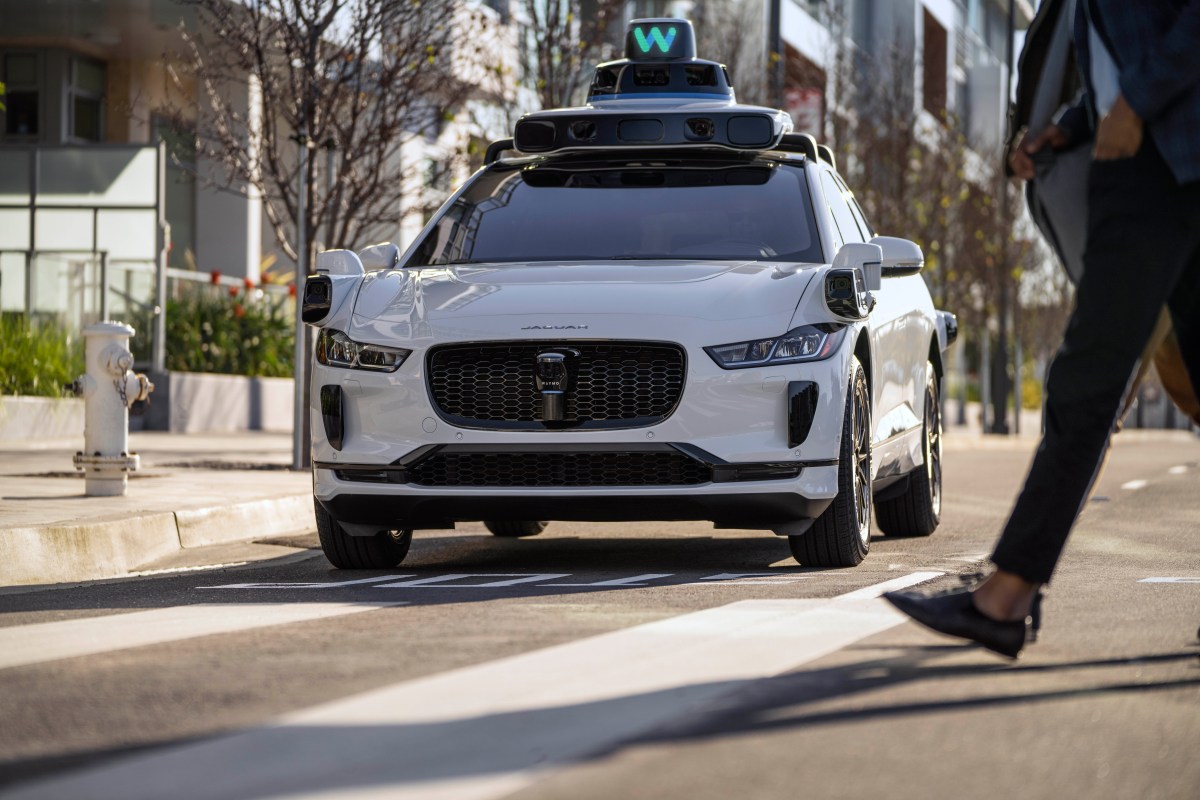ARTICLE AD
New health and wellness technology can be an attractive sell because, well, who doesn't want to feel better? At CES this year, some of the new devices and concepts showcased marketed as a means to improve your health -- or at least make you look cool trying to do it.
Here's a round-up of some of the best and most interesting health and wellness technology that's come out of CES this year so far. In similar news, read on for futuristic concepts, products you can already buy today and our best of show picks for 2024.
A smart ring with a new edge
There's a new smart ring in town: the Evie health tracker. Made by Movano, it won CNET's admiration at CES this year, earning a spot in our best of show. In a world of smartwatches and wearables, what sets Evie apart is that it was designed with women's health in mind, from the fit of the ring itself to the way it interprets data in a holistic way. For more on the Evie ring -- including how comfortable it was to wear, how it tracked steps and more -- check out Bridget Carey's hands-on test of Evie on the CES floor.
The Evie ring and app are currently only compatible with iOS, with plans to support Android in the near future. You can order one now for $269 (in gold, rose gold or silver colors) with shipments expected later this month. Unlike Oura ring, there is no monthly subscription for an Evie ring -- just the one-time payment.
An all-in-one thermometer, stethoscope and heart health checker
BeamO is a four-in-one health-scanning device.
WithingsThe BeamO from Withings is a Wii-looking thermometer that does it all -- takes your temperature, checks your heart rate and blood oxygen levels, and even works as a stethoscope.
Designed to be easy to carry and light to hold, the BeamO is entering the market post-pandemic, where telemedicine visits are still the norm. But increasingly, patients want quick access to basic health information that providers may normally collect in-office.
Watch this: Withings BeamO Is a Thermometer, ECG and More in Your Pocket
01:48
BeamO could help anyone who wants easy insights into their heart and lung health (and temperature, of course) monitor their baselines and share information with their health care providers. Following expected clearance from the US Food and Drug Administration this June, you can get one for $250.
Glasses that let you hear better
The Nuance Audio glasses can amplify the voice of the person you're speaking to.
John Kim/CNETThe Nuance Audio glasses from EssilorLuxottica were made for people with mild or moderate hearing loss -- those who notice they have some trouble hearing in noisy, busy places. They have technology built right into the glasses frames that will amplify sound. To adjust the volume, users can tweak the glasses themselves or use the companion app. You'll also be able to add your vision prescription to the lenses.
A pair of Nuance Audio specs will provide a different way for people to improve their hearing. Even now that the FDA is allowing over-the-counter hearing aid sales so people can get a hearing aid without a prescription, high cost and perceived stigma of wearing hearing aids are still barriers to treatment for many people. (There's no official word on how much the Nuance Audio glasses will cost yet.)
Nuance Audio glasses are expected to be available in late 2024 in the US. They aren't a replacement for hearing aids, but EssilorLuxottica is registering them with the FDA as an over-the-counter hearing device.
Read more: This Smart Bed Adjusts to Your Body With AI Sensors and Strings
An air conditioner for your neck
A personal air conditioner that travels with you.
Torras/PR NewswireTorras, which makes wearable air conditioners for your neck, announced a new model of its personal air condition at CES this year, the Coolify Cyber. While it's not a new concept this year (there are other models available for sale), it's the company's latest version of an air conditioning product that fits around the back of your neck to keep you cool -- not a bad choice for a hot day walking around, and one of the more approachable wellness items.
It works by running an electrical current between a semiconductor and a ceramic cooling plate that sits on your neck. CNET's Nick Wolny had a chance to test out the Torras' neck air conditioner, describing it as a positive experience that was "a blast of cold air, but like a neck pillow that energized me."
A toothbrush that tells you when you're doing it wrong
Watch this: This Wi-Fi Toothbrush Talks You Into Being a Better Brusher
01:30
This year at CES, the Oclean X Ultra Wi-Fi Digital Toothbrush made its debut as a smart toothbrush that uses bone-conduction technology and an AI voice guide to give you tips on your brushing technique, including whether you're brushing too hard or focusing too much time in one part of your mouth. It has five brush modes designed for specific needs or times of the day and an interactive touch screen that can tell you where you missed a spot. The Oclean X Ultra will launch in the US this fall and costs $130.
CES 2024: Kitchen Tech and Cooking Tools That Caused the Biggest Stir
See all photosImproved diabetes tech
A mold of the Mobi, Tandem's tiny automated delivery system.
Jessica Dolcourt/CNETThe big diabetes device companies had a presence at CES this year, showcasing the latest improvements in technology for people with Type 1 diabetes. Last summer, Tandem announced FDA clearance of its Mobi insulin pump, the world's smallest automated insulin delivery system. And at the 2024 CES, the company brought it in for a showcase ahead of its anticipated launch early this year.
Abbott and Tandem also just announced a US integration of Abbott's newest continuous glucose monitor, the FreestyleLibre 2 Plus Sensor, with Tandem's T:slim X2 insulin pump.
At launch, the Mobi will be compatible with the Dexcom G6 sensor, with Dexcom G7 and Abbott's Freestyle Libre 2 Plus sensor compatibility anticipated to follow, according to a press release.
New at-home smart UTI test
Vivoo's at-home urine tests pair with an app.
VivooUrinary tract infections (known as UTIs) are a common reason for a trip to the doctor. Vivoo, a health tech company that makes at-home urine tests with a partnered app, announced a new UTI test that gives users quick results that are stored on an app.
Vivoo said in a press release it's able to give UTI results through its "deep learning image processing technology" through its software.
To use it, download the Vivoo app first. Then, pee on the strip and scan it to get results on the app. Because it's stored on an app, you can easily share results with a health care provider to get a prescription or treatment.
At-home urine strips (even for UTIs) aren't new to DIY health care, but having a test available to people in partial app form can be useful for those who want more privacy or people who want to narrow down the cause of their symptoms. It also follows in the footsteps of other pee-based CES tech, like last year's toilet sensor from Withings.
Read more: Anti-Snore Pillows at CES: This Smart Pillow Senses When You're Sawing Logs
A wearable that's supposed to track your focus and agility
The Pison Ready wristband
Lisa Eadicicco/CNETWe're all used to companies boasting their health-tracking and fitness-monitoring features, but what about how clear-headed and mentally sharp you're feeling? This year at CES, makers of the Pison Ready claim they can track just that.
The Pison Ready is made to measure metrics of mental focus, reaction time and agility through tests taken on your wrist, as demonstrated by CNET's Lisa Eadicicco. Pison Technology says it can zone in on your mental alertness by detecting neurological signals from the brain that suggest mental acuity. The company initially based its neural biosensing technology to benefit amyotrophic lateral sclerosis (ALS) patients.
The Pison Ready launches in February and will be available as a subscription -- three months for $59, a year for $119 and two years for $199. It's not clear right now how practical it'll be for most people -- or how accurately it shows people's real-time ability to stay focused -- but the availability of a wearable that measures more heady wellness metrics, as opposed to more strict health metrics like blood oxygen or sleep stages, could potentially be an advancement in the wellness bubble in 2024.
Read on for some of the wackiest tech at CES this year, which robots we saw there, and the most cutting-edge tech for 2024.

 1 year ago
278
1 year ago
278 

